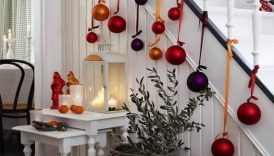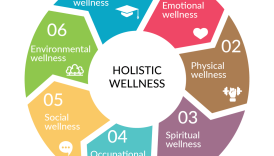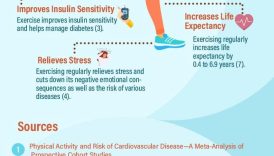Exploring the Benefits of a Plant-Based Diet for Fresh Healthy Living
Understanding the Plant-Based Diet
In recent years, the plant-based diet has gained significant attention, not just as a trend but as a powerful lifestyle change. A plant-based diet predominantly consists of fruits, vegetables, whole grains, nuts, and seeds, while minimizing or excluding animal products. This shift in dietary habits is more than just choosing a salad over a steak; it’s about embracing a holistic approach to nutrition and well-being. For many, transitioning to a plant-based diet may seem daunting. However, it can begin with small, manageable changes—like swapping a meat dish for a hearty vegetable stir-fry. For instance, a friend of mine started her journey by taking “Meatless Mondays” challenge, and soon found herself exploring new recipes and discovering vibrant flavors she never knew existed.
- Exploring the Benefits of a Plant-Based Diet for Fresh Healthy Living
- Understanding the Plant-Based Diet
- Importance of Fresh Healthy Living
- Nutritional Benefits of a Plant-Based Diet
- Increased Intake of Vitamins and Minerals
- Improved Digestive Health
- Health Benefits of a Plant-Based Diet
- Lower Risk of Chronic Diseases
- Enhanced Weight Management
- Environmental Benefits of a Plant-Based Diet
- Reduced Carbon Footprint
- Preservation of Natural Resources
- Grocery Shopping Tips for a Plant-Based Diet
- Choosing Seasonal and Organic Produce
- Reading Food Labels
- Meal Planning and Recipes for Fresh Healthy Living
- Simple Plant-Based Meal Ideas
- Cooking Techniques for Plant-Based Foods
Importance of Fresh Healthy Living
Fresh healthy living extends beyond just the food choices we make; it encompasses a mindset focused on overall wellness. Eating seasonal, fresh produce not only enhances the flavors of meals but also provides optimal nutrition. Fresh ingredients are typically richer in vitamins, minerals, and antioxidants, all crucial for maintaining health. Consider some essential aspects to incorporate into your daily routine:
- Create a Colorful Plate: Aim for a variety of colors in your meals to ensure a wide range of nutrients.
- Prioritize Local Produce: Supporting local farmers not only strengthens communities but also means fresher food for you.
- Stay Hydrated: Pair your meals with plenty of water to support digestion and overall health.
By embracing the concept of fresh healthy living, individuals can cultivate a lifestyle that promotes both physical well-being and a strong connection to the food they consume.
Nutritional Benefits of a Plant-Based Diet
Increased Intake of Vitamins and Minerals
One of the standout advantages of a plant-based diet is the significant boost in the intake of essential vitamins and minerals. By shifting towards a diet rich in fruits, vegetables, legumes, and whole grains, individuals can enjoy a treasure trove of nutrients. For instance, leafy greens like kale, spinach, and collard greens are packed with vitamins A, C, K, and important minerals such as calcium and iron. Additionally, fruits like berries and citrus fruits are bursting with antioxidants that bolster the immune system. My brother, who adopted a plant-based lifestyle last year, noticed a marked improvement in his energy levels. He credits this to his increased consumption of colorful fruits and vegetables that flood his diet with nutrients. Here’s a quick rundown of some key nutrients found in plant-based foods:
- Fiber: Found in beans, lentils, and whole grains—supports digestive health and helps maintain a healthy weight.
- Vitamin C: Abundant in oranges, bell peppers, and strawberries—bolsters the immune system.
- Iron: Present in lentils, chickpeas, and spinach—important for energy levels.
Improved Digestive Health
Another vital benefit of a plant-based diet is enhanced digestive health. The high fiber content in plant foods aids in regular bowel movements and promotes a healthy gut microbiome. People who adopt a plant-based diet often report less bloating and discomfort compared to when they consumed animal products. For example, a colleague of mine experienced lasting relief from occasional digestive issues after incorporating more plant-based meals into her routine. Consider these key digestive benefits:
- Promotes Healthy Gut Bacteria: Fiber acts as a prebiotic, nourishing beneficial gut bacteria.
- Reduces Constipation: High-fiber meals facilitate smooth digestion and prevent constipation.
- Supports Digestive Enzymes: Whole foods are easier for the body to break down, allowing for better nutrient absorption.
By prioritizing a variety of plant foods, individuals not only enhance their nutritional intake but also foster optimal digestive health, paving the way for overall well-being.
Health Benefits of a Plant-Based Diet
Lower Risk of Chronic Diseases
Another compelling reason to adopt a plant-based diet is the significant reduction in the risk of chronic diseases. Research consistently supports the notion that diets rich in vegetables, fruits, nuts, and whole grains can lower the chances of developing conditions such as heart disease, diabetes, and certain types of cancer. For example, after my aunt made the switch to a plant-based diet five years ago, her doctor noted a dramatic improvement in her blood pressure and cholesterol levels. This is not an isolated case; numerous studies have shown that plant-based diets can lead to:
- Lower Blood Pressure: Consuming more whole, plant-based foods helps maintain healthy blood pressure.
- Improved Heart Health: Foods rich in fiber and healthy fats, like avocados and nuts, promote cardiovascular wellness.
- Reduced Diabetes Risk: Plant-based diets improve insulin sensitivity and assist in weight management.
Enhanced Weight Management
In addition to lowering disease risk, a plant-based diet can be beneficial for those looking to manage their weight effectively. Foods that are minimally processed and rich in nutrients typically have lower calorie densities, allowing individuals to enjoy larger portions without overeating. During her weight loss journey, a friend found that embracing a plant-based lifestyle helped her shed unwanted pounds. She focused on whole foods like quinoa, legumes, and vibrant salads. Here’s how a plant-based diet facilitates weight management:
- High Fiber Content: Fiber-rich foods promote feelings of fullness, reducing the likelihood of overeating.
- Nutrient-Dense Choices: These foods are naturally low in saturated fats and added sugars, making it easier to maintain a healthy weight.
- Mindful Eating: The process of preparing plant-based meals encourages a more mindful approach to eating, fostering healthier habits.
By choosing a plant-based diet, individuals can not only bolster their health but also cultivate habits that support a balanced and vibrant lifestyle.
Environmental Benefits of a Plant-Based Diet
Reduced Carbon Footprint
Beyond the personal health advantages, adopting a plant-based diet comes with significant environmental benefits, starting with a reduced carbon footprint. The production of animal-based products is highly resource-intensive and accounts for a substantial portion of global greenhouse gas emissions. For instance, a close friend of mine, who is passionate about sustainability, made the switch to a plant-based diet not only for her health but to contribute to environmental preservation. She often shares statistics highlighting that:
- Beef Production: Produces approximately 20 times more greenhouse gas emissions per gram of protein than beans.
- Dairy Industry: Contributes nearly 3% of global emissions, surpassing many countries’ total emissions.
By choosing plant-based foods over animal products, individuals can significantly lower their carbon footprint and help combat climate change.
Preservation of Natural Resources
Additionally, a plant-based diet plays a crucial role in the preservation of natural resources. Animal agriculture is responsible for extensive land and water use, often leading to deforestation and depletion of crucial freshwater supplies. Shifting to a plant-based diet can alleviate some of this pressure. Consider the following points:
- Water Conservation: Producing a pound of beef requires about 1,800 gallons of water, whereas growing a pound of lentils requires only around 600 gallons.
- Land Usage: Plant-based diets require less land, as crops can feed more people directly compared to the land needed for livestock feed.
By prioritizing plant-based foods, individuals can help diminish the strain on our planet’s resources. My friend’s journey has inspired many within her community to think about how their food choices affect the environment, creating broader awareness and prompting positive change. Ultimately, adopting a plant-based lifestyle not only benefits personal health but also fosters a sustainable future for the planet we call home. With every meal choices we make, we collectively contribute to a healthier environment.
Grocery Shopping Tips for a Plant-Based Diet
Choosing Seasonal and Organic Produce
When embarking on a plant-based journey, grocery shopping can be a delightful adventure, especially when it comes to selecting seasonal and organic produce. Eating seasonally means choosing fruits and vegetables that are at their peak freshness and flavor, which often results in more nutritious meals. For instance, my sister loves visiting local farmers’ markets to grab fresh produce. She discovered that strawberries are at their best in spring, while squash shines in the summer months. By incorporating seasonal foods into her meals, she not only enjoys tastier dishes but also supports local farmers. Here are some quick tips for selecting seasonal and organic produce:
- Research Seasonal Produce: Familiarize yourself with what fruits and vegetables are in season in your area.
- Choose Organic When Possible: Organic produce is grown without synthetic pesticides and fertilizers, making it a healthier choice for the environment and your body.
- Plan Your Meals: Make a menu around seasonal ingredients, allowing for flexibility and variety throughout the week.
Reading Food Labels
Another essential aspect of grocery shopping for a plant-based diet is understanding how to read food labels. This skill ensures that you’re selecting products that align with your health goals and dietary preferences. When you’re at the store, consider these key points:
- Ingredient Lists: Look for short ingredient lists with recognizable foods. For instance, a package of hummus should ideally list chickpeas, tahini, lemon juice, and garlic—not preservatives.
- Nutritional Information: Pay attention to the nutritional value, especially fiber content, which is essential for a plant-based diet.
- Avoid Added Sugars: Be wary of items that contain excessive added sugars, often listed under various names like sucrose, high fructose corn syrup, and cane sugar.
By mastering the art of choosing seasonal and organic produce and reading food labels, individuals can enhance their plant-based experience while making informed choices that benefit both their health and the environment. Each shopping trip can become an opportunity for exploration and empowerment in the kitchen.
Meal Planning and Recipes for Fresh Healthy Living
Simple Plant-Based Meal Ideas
After mastering grocery shopping for a plant-based diet, the next step is meal planning, which can simplify your week and ensure you’re always ready to enjoy healthy meals. Simple plant-based ideas can make this process enjoyable! For example, my friend Carla began meal prepping every Sunday, and she swears it’s transformed her weeknights. Here are some easy meal ideas she often includes in her rotation:
- Chickpea Salad: Mix canned chickpeas, diced cucumber, cherry tomatoes, red onion, and a lemon-tahini dressing for a refreshing lunch.
- Vegetable Stir-Fry: Sauté seasonal veggies like bell peppers and broccoli with tofu in soy sauce or tamari for a quick dinner.
- Quinoa Bowls: Combine cooked quinoa with black beans, avocado, corn, and a splash of lime juice for a filling meal.
- Overnight Oats: Soak oats in almond milk with chia seeds and top with bananas and almond butter for a nutritious breakfast.
Cooking Techniques for Plant-Based Foods
Mastering cooking techniques is just as crucial as selecting great ingredients. Different methods can enhance the natural flavors of plant-based foods and keep meals exciting. When Carla wants to try something new, she experiments with various techniques:
- Roasting: Roasting vegetables like sweet potatoes, carrots, and Brussels sprouts caramelizes their natural sugars, bringing out an irresistible flavor.
- Steaming: Steaming retains nutrients in vegetables like asparagus and broccoli, making them tender yet crisp.
- Sautéing: This quick method is perfect for cooking greens like spinach or kale, keeping them vibrant and flavorful.
- Blending: Use a blender to create smoothies packed with fruits and leafy greens, or whip up soups that are creamy without dairy.
By integrating simple meal ideas and versatile cooking techniques into the mix, meal planning for a plant-based lifestyle can become a fun, creative process. Each week becomes an opportunity to explore flavors, textures, and combinations that promote fresh, healthy living while delighting the palate.





